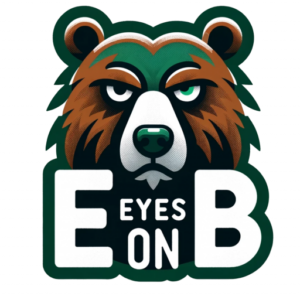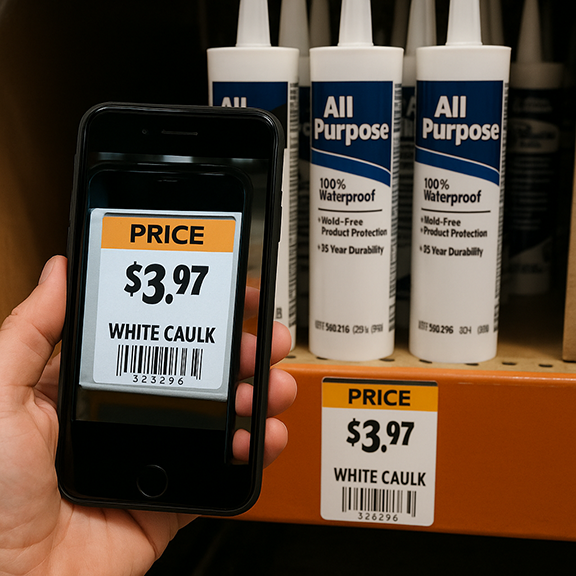Eyes on EB Investigates
When a Shelf Tag Becomes a Statement of Law
In East Brunswick and across New Jersey, a growing number of residents have reported the same infuriating trend—stores are displaying one price on the shelf and charging another at the register. What’s worse? Some retailers are blaming “tariffs” or system updates while quietly hoping you don’t notice.
But you should notice. And you do have rights.
Eyes on EB took a closer look at this growing issue after local shopper J.A. shared her experience where she was charged more than the posted price for a tube of caulk. The manager blamed a new “tariff,” but J.A. stood her ground.
“They would have gotten away with it, had I not been paying attention,” said J.A., whose vigilance ended up saving another shopper with a full cart.
“The lady with the larger cart of items was SUPER appreciative of me,” she added.
It wasn’t an isolated incident. D.G.B.-R. chimed in with, “The items on the sales floor were here long before the tariffs, so that’s a shitty excuse. And they have to honor the posted price—not the price of the hour.”
So what does New Jersey law actually say?
Eyes on EB Consults the Law
We reviewed the official site of the New Jersey Division of Consumer Affairs and found this:
“If a consumer is charged more than the advertised or displayed price, they are entitled to pay the lower of the two.”
It falls under the NJ Consumer Fraud Act, and there’s further protection from the Office of Weights and Measures, a unit tasked with verifying that store scanners match posted prices. That’s not just a guideline—it’s the law.
S.M. recalled, “When I used to get dog food at Petco, I’d have to take a photo of the price tag every time because it would ring up more at the register.”
J.P. added, “25 years ago, I got fined $7 per item when prices didn’t match the tags. They used to write you up for that.”
Apparently, things have changed. According to J.A., “The Consumer Financial Protection Bureau has just had 90% of their employees let go. Good luck getting help.”
But not everyone’s giving up. O.P.K. encouraged residents to file complaints through the Consumer Affairs website. J.A. did just that and received confirmation that her complaint was forwarded to Middlesex County Consumer Affairs.
The “Tariff” Excuse and the Fine Print Fallacy
Some stores claim that global supply chain issues, rising tariffs, or inflation justify charging more at the register—even when the shelf still displays a lower price. But that’s not how it works.
B.T., who may have put it best, explained:
“In legal terms, the posted price is essentially an offer to sell. If a customer agrees to that price, a contract is formed. Both parties now understand the cost involved.”
That means unless the store updates its shelf tags, they must sell the product at the displayed price.
Retailers are legally obligated to update their price tags before adjusting what gets scanned. To do otherwise isn’t just shady—it could result in fines.
R.G. recalled a time when a local store faced a $10,000 fine for persistent price discrepancies. And C.M. reminded us: “They could also be fined for that.”
What You Can Do
-
Photograph the shelf price before heading to the register.
-
Speak up if the scanned price is higher than what was posted.
-
File a complaint at NJConsumerAffairs.gov.
-
Call your county’s Office of Weights and Measures to report violations.
-
Share your story—as many in our community already have.
A.R.S. summed up the general vibe: “They may have honored the posted price today, but the shelf tags will be updated soon enough. Then there will be no arguing about the tax increase.”
Eyes on EB will continue tracking complaints like this and following up with county and state agencies. If they’re betting on our silence, they should reconsider.
Because the law is clear. The community is watching. And Eyes on EB always checks the receipt.




